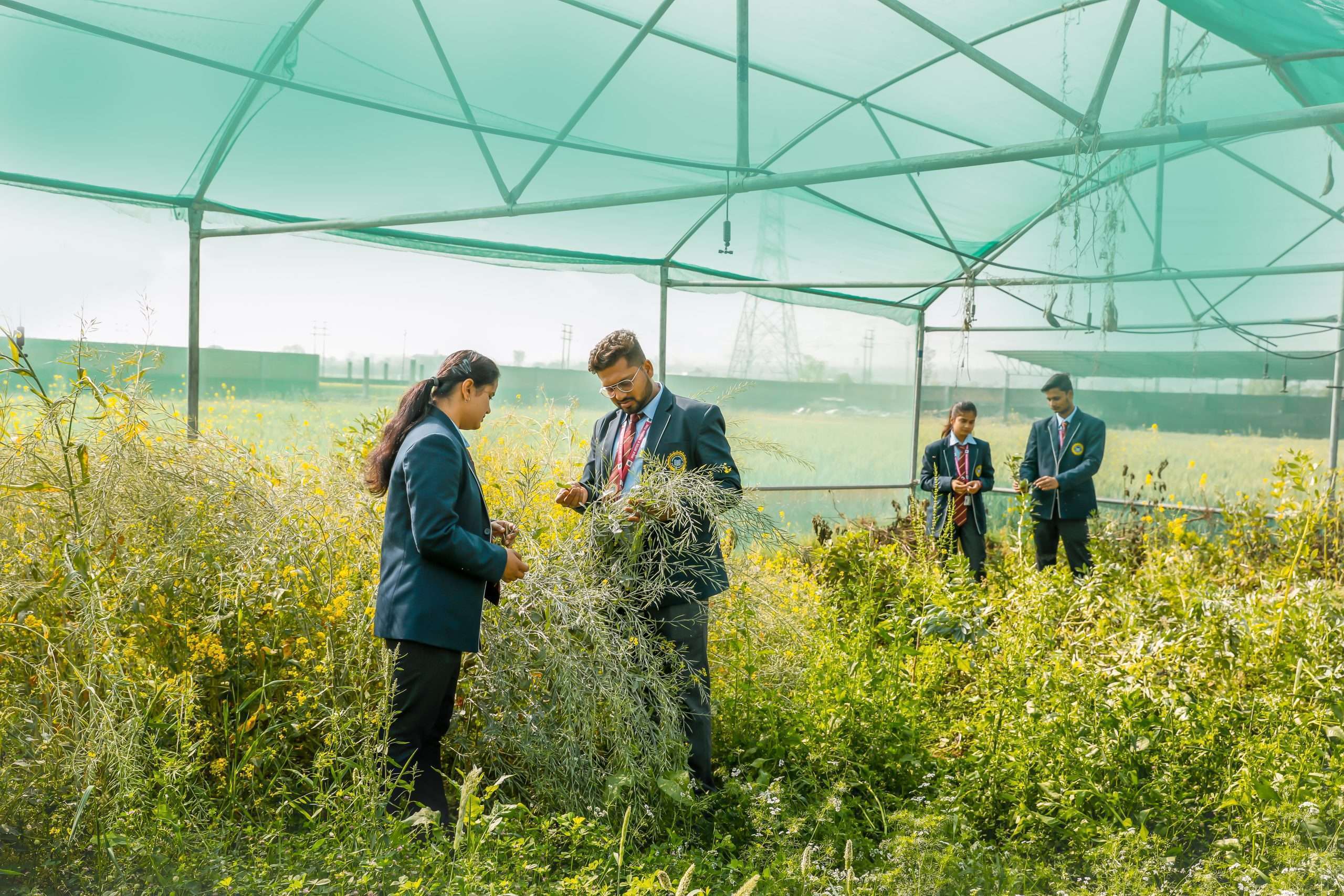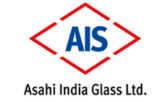Menu
Duration 4 years
Eligibility Criteria A person who has secured at leat 60% marks of the aggregate marks in four compulsory subjects i.e. Chemistry, Physics, Biology/Math, and English taken together of 10+2 pattern or equivalent examination from a recognized Board/University shall be eligible to join the first semester of the course or intermediate/10+2 with agriculture subjects.

Why take this Course?
Why choose Us?
Progressions & Career
Career:
Students can enter the workforce directly after completing B.Sc. (Hons) Agriculture, with opportunities available in both the government and private sectors. The top job roles for students after completion of their program include the following:
Progression:
After completing the bachelor’s program from reputed agriculture colleges in Dehradun, many students prefer to pursue higher education to get opportunities in specialized roles for research, teaching, or government positions. Students can also pursue their education in management courses, specializing in the administration of the agricultural sector.
Following the completion of B.Sc. (Hons) Agriculture, students can pursue M.Sc. Agriculture with specialization in various disciplines, including:
Students also explore management-oriented pathways such as an MBA in Agribusiness and Food Science, combining agricultural knowledge with business and industry insights.
The Shivalik Advantage
Top Recruiters






Fee Structure 2025

Prof. (Dr.) Ramesh Chandra is presently serving as Professor and Dean, Agriculture, Shivalik College of Engineering.
Dr. Chandra has more than 34 years of experience in teaching and research at the G.B. Pant University of Agriculture and Technology, Pantnagar. He obtained his M.Sc. (Ag.) and Ph.D. degrees in Soil Science from Pantnagar University in 1981 and 1985, respectively. He was awarded the Junior Research Fellowship of the Indian Council of Agricultural Research during his Doctoral Research.
He served as Head, Department of Soil Science at the University for more than 9 years and played a key role in revising and implementing course curricula as per ICAR recommendations and in developing new courses and laboratory facilities. He also rendered his services to the University as Joint Director Research for more than 7 years and contributed to planning and monitoring research activities on field, vegetable, and horticultural crops.
Dr. Chandra also served as Professor IFFCO Chair for more than 12 years. He was elected Councilor of the Indian Society of Soil Science for the biennium 2005–2006. The Hon’ble Chancellor and Governor of Uttarakhand nominated him as a member of the Executive Council of Soban Singh Jeena University, Almora for the biennium 2024–25 and 2025–26.
Contact Info
Curriculum
| BSAC-101 | Fundamentals of Horticulture |
| BAST 102 | Fundamentals of Plant Biochemistry and Biotechnology |
| BSAC-103 | Fundamentals of Soil Science |
| BSAC-104 | Introduction to Forestry |
| BMEP 105 | Comprehension & Communication Skills in English |
| BSAC-106 | Fundamentals of Agronomy |
| BSAC-107 | Introductory Mathematics |
| BSAC-108 | Biology/Elementary |
| BSAR-109 | Agricultural Heritage* |
| BSAC-110 | Rural Sociology & Educational Psychology |
| BSAN-111 | Human Values & Ethics (non gradial) |
| BSAN-112/ BSAN-113/BSAN-114 | NSS/NCC/Physical Education & Yoga Practices |
| BSAC-201 | Fundamentals of Genetics |
| BSAC-202 | Agricultural Microbiology |
| BSAC-203 | Soil and Water Conservation Engineering |
| BSAC-204 | Fundamentals of Crop Physiology |
| BSAC-205 | Fundamentals of Agricultural Economics |
| BSAC-206 | Fundamentals of Plant Pathology |
| BSAC-207 | Fundamentals of Entomology |
| BSAC-208 | Fundamentals of Agricultural Extension Education |
| BSAC-209 | Communication Skills and Personality Development |
| BSAC-301 | Crop Production Technology 1 (Kharif Crops |
| BSAC-302 | Fundamentals of Plant Breeding |
| BSAC-303 | Agricultural Finance and Cooperation |
| BCET-304 | Agri- Informatics |
| BSAC-305 | Farm Machinery and Power |
| BCEP-306 | Production Technology for Vegetables and Spices |
| BSAC-307 | Environmental Studies and Disaster Management |
| BSAC-308 | Statistical Methods |
| BSAC-309 | Livestock and Poultry Management |
| BSAC-401 | Crop Production Technology -II (Rabi Crops |
| BSAC-402 | Production Technology for Ornamental Crops. MAP and Landscaping |
| BSAC-403 | Renewable Energy and Green Technology |
| BSAC-404 | Problematic Soils and their Management |
| BSAC-405 | Production Technology for Fruit and Plantation Crops |
| BSAC-406 | Principles of Seed Technology |
| BSAC-407 | Farming System & Sustainable Agriculture |
| BSAC-408 | Agricultural Marketing Trade & Prices |
| BSAC-409 | Introductory Agro-meteorology & Climate Change |
| Given in the list | Elective Course(one course can be selected from the list of Elective Courses) |
| BSAC-501 | Principles of Integrated Pest and Disease Management |
| BSAC-502 | Manures, Fertilizers and Soil Fertility Management |
| BSAC-503 | Pests of Crops and Stored Grain and their Management |
| BSAC-504 | Diseases of Field and Horticultural Crops and their Management -I |
| BSAC-505 | Crop Improvement-1 (Kharif Crops) |
| BSAC-506 | Entrepreneurship Development and Business Communication |
| BSAC-507 | Geoinformatics and Nano-technology and Precision Farming |
| BSAC-508 | Practical Crop Production - 1 (Kharif crops) |
| BSAC-509 | Intellectual Property Rights |
| Given in the list | Elective Course(one course can be selecetedfrom the list of Elective Courses) |
| BCET 601 | DSIGN OF Rainfed Agriculture & Watershed ManagementRC STRUCTURE |
| BSAC-602 | Protected Cultivation and Secondary Agriculture |
| BSAC-603 | Diseases of Field and Horticultural Crops and their Management-II |
| BSAC-604 | Post-harvest Management and Value Addition of Fruits and Vegetables |
| BSAC-605 | Management of Beneficial Insects |
| BSAC-606 | Crop Improvement-11 (Rabi crops) |
| BCEP-607 | Practical Crop Production -11 (Rabi crops) |
| BSAC-608 | Principles of Organic Farming |
| BSAC-609 | Farm Management. Production & Resource Economics |
| BSAC-610 | Principles of Food Science and Nutrition |
| Given in the list | Elective Course(one course can be selected from the list of Elective Courses) |
| BSAW-701 | Rural Agricultural Work Experience and Agro-industrial Attachment(RAWE &AIA) |
B.Sc Agriculture
Program Specific Outcomes and Program Educational Objectives
To understand the fundamentals concepts of agriculture and applied science and apply the fundamental knowledge of agriculture and their allied field.
Identify the complex problems face during farming and their allied field, analyze agriculture problems and have a capabilities to deal with the concerns of sustainable development (productive, profitable and stability) of agriculture in all its aspects through acquainted to strong technical and practical background.
Develop solutions for complex agricultural problems that meet the specified needs of various stakeholders.
Use research-based knowledge and research methodology, analysis and interpretation of data, and synthesis of the information to provide logical and implementable conclusions.
Understand the basic principles of modern tools, how to use these tools in the field of agriculture and allied field to create some new product and overcome the complex problems.
Apply reasoning informed by the contextual knowledge to assess societal, health, safety, legal and cultural issues and the consequent responsibilities relevant to the professional agricultural practices.
Demonstrate knowledge and understanding of the concept of agriculture and apply these to one’s own work, as a member and leader in a team, to manage projects and in multidisciplinary environments.
Possess knowledge, skills including soft skills such as written and verbal communication ability and also entrepreneurship to provide a class of village based services such as advisories on new innovation, markets and avenues of development.
Understand the impact of the new technologies development in societal and environmental contexts, and demonstrate the knowledge of, and need for sustainable development (To assess and minimize the residual effect of pesticides and herbicide on crops, soil and water).
Apply ethical principles and commit to professional ethics and responsibilities and norms of the agricultural practice.
Develop a leadership quality and function effectively as an individual, and as a member or leader in diverse teams, and in multidisciplinary settings.
Develop the capacity of research mindset, recognize the need for, and have the preparation and ability to engage in independent and life-long learning in the broadest context of technological changes in the agriculture and allied fields.
To develop analytical skills, problem-solving skills, leadership skills and To develop entrepreneurial aptitude required in the agriculture and allied science field.
To understand the theoretical and practical concepts of agriculture tools and technologies that are commonly used in the field of agriculture and allied sciences.
To impart in-depth practical knowledge from ancient to modern agricultural practices to overcome the common and complex problems in agriculture and allied sciences.
To create a good teaching-learning environment for study and help in the selection of professional careers in education, research and extension.
To provide adequate information various agriculture technology and disseminate these technological development through extension.
To develop the skill for leadership, entrepreneurship and professional engagement in agriculture and allied sciences.
To train the professionals through education, research and extension activities to fulfill the market and industry demand.
To develop the research mindset and ethical integrity in the broadest context of the field of agriculture and allied sciences.
Vision & Mission
Vision of the Department
To create a stimulating and active learning environment that fosters professional and entrepreneurial human resources through education, research, and extension activities.
Mission of the Department